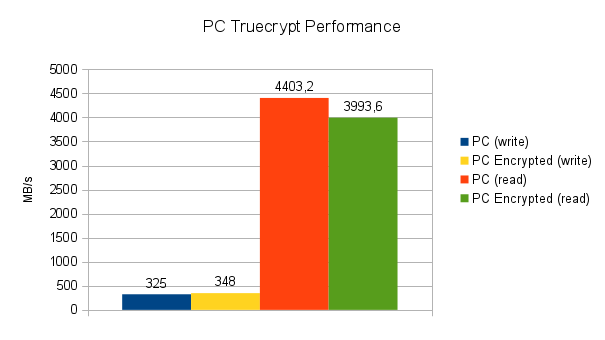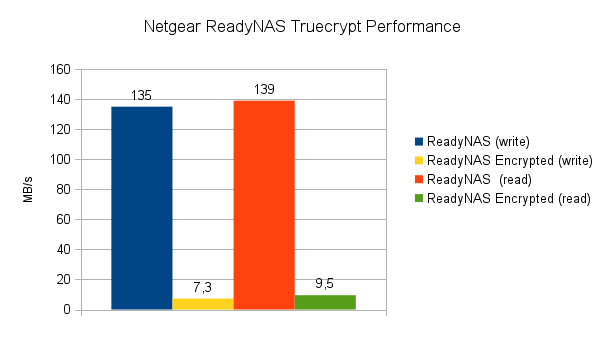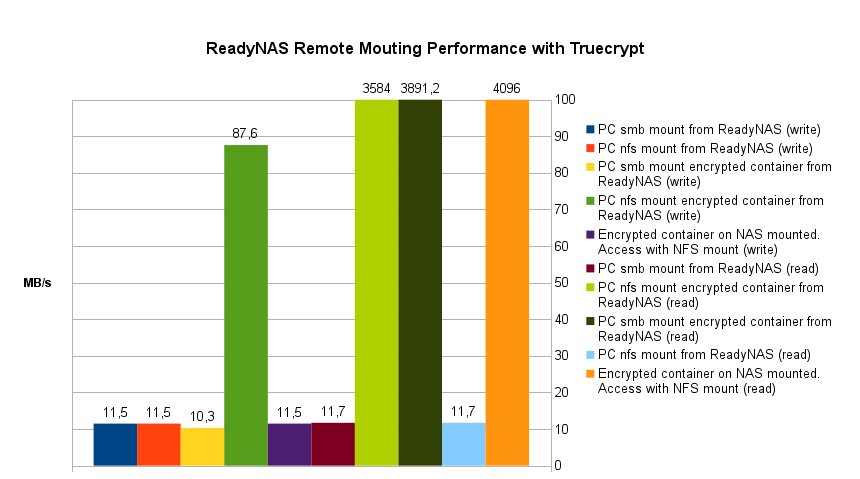Truecrypt performance test on Netgear ReadyNAS 102
Happy New Year everybody!
This follow up post to my last article about using Truecrypt on my ReadyNAS 102 (with two Seagate Pipeline HD ST2000VM003 – 2 TB – 5900 rpm RAID 1) (http://www.ceh-photo.de/blog/?p=809 ) will examine the transfer performance while using Truecrypt.
Test setup:
For comparison I have tested as well on my desktop PC:
- Intel Core i3 2,98GHZ (Clarkdale)
- 12GB RAM
- WD Blue 1TB hard disk
My computer and the NAS are connected by a 100mbit Router only, unfortunately not by Gigabit-Ethernet. If someone could provide some test results using a 1Gbit router, I would be glad to get them.
The test container had a size of 2GB formatted with FAT32 and I used the default encryption settings with AES and RIPEMD-160 hashing. The test script first wrote 1GB of random data and read it afterwards.
See the test script below:
dd if=/dev/zero of=testfile bs=1048576 count=1024
echo "Read"
dd if=testfile of=/dev/null bs=1048576
rm testfile
Results:

The Truecrypt performance results on my desktop computer are not very surprising. I am only wondering why the write performance with encryption is better than without. Maybe because the additional encryption layer from Truecrypt includes additional buffers or caches…

The performance tested directly on my ReadyNAS is not surprising at all. I have expected that the performance will suffer that much, because of the low performance CPU.

The last comparison shows different possible mounting situation to access the encrypted container on the ReadyNAS. Because for most of the test runs only the container file is used, all encryption/decryption is executed on my desktop computer. Some things are interesting. The performance with NFS and SMB without encryption is similar on my 100mbit network, but the write performance with NFS mount and encryption is much higher. As well as the read performance of the encrypted container with NFS and SMB. But like already mentioned, these results are not really trustable and a probably a result of caching. But anyway you will benefit from higher performance if you are importing or exporting mass data to an encrypted container on the NAS if you do the encryption/decryption computing on another machine. The performance you can get with encryption/decryption performed by the NAS itself is still enough for streaming data or similar tasks and do not suffer at all if you are using 100mbit only.
Let me know, if you consider this post interesting.
What do you think?
You must be logged in to post a comment.